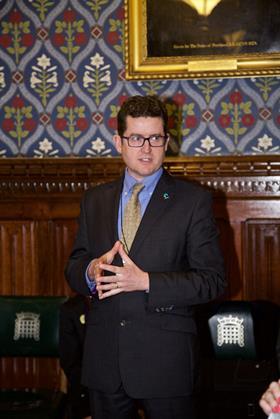
Next week I am meeting with business partners and leaders to launch a new five-year strategy, ‘Changing Trade Changing Lives’, which calls on individuals and businesses to show that we can all make a difference, by putting the ‘I’ in Fairtrade. And millions of us already do use the power that we have as consumers simply by using the pound in our pocket.
For example, thanks to consumer power, Fairtrade bananas now make up a third of the UK market. That is a huge achievement. And despite operating in a challenging grocery market, sales volumes are still growing in many of our key commodities including bananas, which is generating stable minimum prices and Fairtrade’s additional £8 million premium for farmers and workers to invest back into business or into their communities. Fairtrade is the only third-party certification scheme that does this. And this is vitally important when the cost of production for bananas has gone up, while at the same time, the price customers pay for a bunch of bananas in UK supermarkets is still too low. While we paid £1.08/kg in 2002, retailers now sell loose bananas at a loss for 68p per kg.
So, how do we address this? We believe change lies in the hands of consumers. Change is literally in your pocket: that’s what we’ve been telling the public this Fairtrade Fortnight and thousands of people have taken a stand by holding breakfast events and choosing products that connect them with the people who produce our food.
That’s why our new strategy focuses on five key commodities: cocoa, coffee, bananas, tea and flowers, because sales of these products deliver the most impact for farmers. We partnered with more than 400 businesses in the UK last year and we’ve launched new and innovative ways of working with Mars and Waitrose. Our strategy aims not just to increase the volumes producers sell on Fairtrade terms, but also develop new programmes that address some of the biggest challenges facing agriculture, such as living wages, gender inequality and climate change.
In 2020 we want farmers to have an even greater share of the value from their products so we will ensure Fairtrade organisations offer decent living wages. We are also developing more opportunities for women and men to have a greater say in how their farmer organisations are run, and skills training to deal with the devastating effects of climate change. Finally, we want business investments in rural communities and agricultural production to focus on long-term social, environmental and economic benefit for all.
So by 2020, while our mission may still be ongoing, it is our ambition that consumers and businesses will know more about the people behind the label, that the ethical consumer movement that we started in the 1990s will be reinvigorated in the fight for helping world trade achieve its potential and truly become a tool of opportunity for all.



